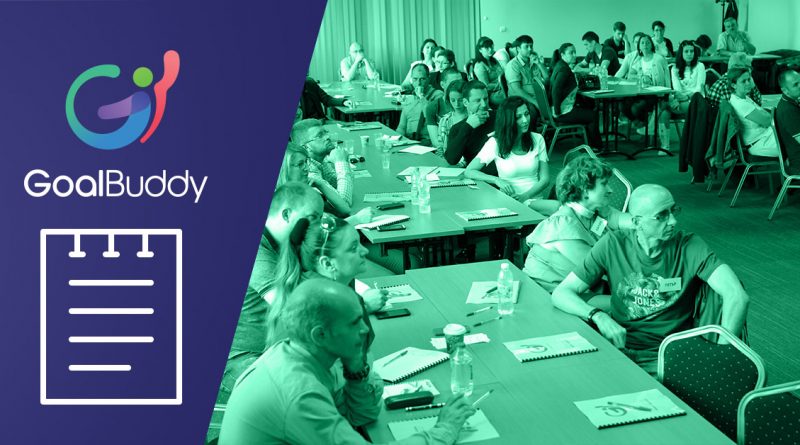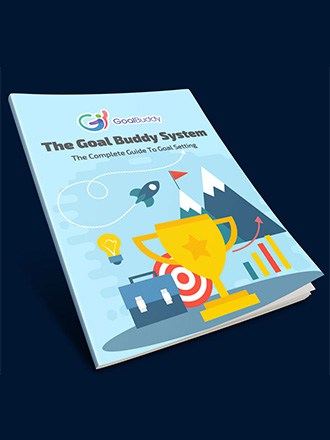How to improve on the skill of “achieving goals”
Is it possible to learn it or there is no way to do that? How about there might be some other skills that you can use to increase your chances to succeed? Today we’ll look at the many opinions on the subject. And then, we’ll try to draw some conclusions and understand it better.
Let’s start with an interesting story which is very indicative.
Labor plus something else
A guy was hired to cut some trees by a timber merchant. The pay was good and he was also given a brand new axe. The lumberjack was a hard-working and conscientious person who felt very much ready to do a good job.
And he did. On the first day, he logged 21 trees. On the second day, he tried harder but managed only 17. The next day he didn’t even take a break and yet he barely cut down 10. Frustrated and somewhat embarrassed he was ready to say sorry to his boss.
The merchant just asked him, “Did you grind the axe?”
“Well,” started the guy, “I was going to but then I was too busy cutting down the trees…”
Unfortunately, we all could be like that.
“Use it or lose it”
Once we know what skills are a prerequisite for success, we can focus on them and make them routine. Eventually, we are getting better and better. We complete the task quicker and with less effort on our part.
But if we stop doing it or fail to push then our results will not stay the same.
A skill is like an axe – it needs to be sharpened regularly.
Not believing in ourselves
And when the going gets tougher we, just like the hero of the story, begin to doubt ourselves. We can come with all kind of explanations. For example, we are not strong or smart enough. Or that we lack the necessary grit, expertise, etc.
And on top of that, it might be that the feedback from those around us isn’t helping much either.
External pressure
We are constantly bombarded with the idea that in order to be the best version of ourselves, we have to buy certain products. They tell us that we have to drink our ginkgo biloba. Or that we will not have sufficient energy throughout the day without our vitamins and supplements.
We end up buying into this and use it as the main reason why we are no longer doing as well. Plus, it’s the easy way out of admitting that we are not doing enough to sustain our abilities.
But that’s our responsibility.
What are the qualities of success?
Of course, for different tasks, we need a different set of tools. Not so clear, however, is that it’s very important to have this one prime skill available at all times. Namely, the one which is exclusively for achieving goals.
Some claim that it can be enhanced and then maintained to a standard. Others think that it is a combination of innate qualities. We classified the different opinions into four separate “levels”.
Level # 1
“Achieving is something that not everybody is good at. It might be somehow inherited. There are people who get things done and there are others who don’t. I am skeptical that you can learn it.”
And the goals?
This way of thinking doesn’t acknowledge the positives of goal-setting or the definition of a long-term vision for people who are not “programmed” to advance in life.
Sure enough that it gives peace of mind and some (illusory) freedom but it has no practical contribution to our efforts.
A convenient misconception
The “benefit” here is that by seeing ourselves as simply unlucky, we are relieved of any personal responsibility.
We can spare ourselves the trouble. Mother Nature has not gifted us in any way. Failure becomes nothing out of the ordinary for us. We are left with nothing more than to call blessed with the gift all those who became great in sports, academia, business and even good parenting.
Level # 2
“I think expertise play some role, however indirect. For example, consistency is one but it is still very much a lottery. Sometimes things happen for us and some other times they don’t.”
A step forward
We begin to suspect that that much is in our own hands and persistence is the key to it. This awareness is still quite fuzzy but already points in the right direction.
Success is neither entirely a question of luck nor is it fully ruled by fate.
On the contrary, it is predicated by constant action accumulated over time.
And that applies across the table, including those human activities for which it is widely accepted that talent is everything.
Even gifted don’t rely entirely on their talent
Recently, Ivan spoke with a fine arts professor who surprised him claiming that there only two things that mattered – discipline and perseverance. And this is a far cry from the belief that most people hold.
Award-winning actors are 24/7 when on a film set or stage rehearsing. Niki witnessed that for himself when he visited a Hollywood production. When he left after midnight the crew was still working.
“The Mother of all skills”
There are many examples.
Each virtuoso violinist has practiced for several hours every day since early childhood with almost no time for anything else. A professional athlete has to follow a strict routine of exercise and recovery for months in a roll ahead of a championship.
The conclusion is in the open. Persistence really is the “skill of all skill.” It is simply a must in anything we undertake.
Level # 3
“Everyone has to develop some qualities for some areas of their life. Any objective depends in one way or another on some ability. For example, if I get better working with people, I can become much better as a team player. Still, I am not 100% sure about it.”
Specific abilities
Here is the firm belief that one can progress in what’s important if they never stop “sharpening the edge of the axe”.
This is simple and intuitive. If you want to be good at finance, you take finance classes. If you want to advance on a family goal, attend seminars and read books on childcare, etc.
That’s how the phenomenon of the winners is created:
The more goals you set, the higher the number of relevant abilities that you will need to gain.
Where is the risk?
Even the winners can burn out
Those who aim at perfection in everything go too far, of course.
They can overload themselves physically as well as psychologically which can lead to negative emotions like frustration and disappointment.
The solution
If you face an issue like that then try to apply the 25-year criterion for every new expertise you intend to acquire.
You have to answer the following question. Will you need it for a life-long vision of yours? If it is a “Yes” then go for it. But if not then try either to delegate to others or look for another way to reach the same objective.
Beyond the obvious that specific tasks require a specific set of skill is the idea that there might be some sort of a universal quality predicating any other.
Level # 4
“I think achieving my goals is a quality like any other. Except that it can be used anywhere and under any circumstances. It can be mastered to the point it becomes an instinct for a consistent rate of progress if the right principles and rules are applied.”
“One skill for all occasions”
Bringing a task to a successful end is the skill underlying all others.
Some even say that there is only one thing you have to learn while in school:
It is to come up with a method for processing new information which you can apply throughout life. Thus, you not only acquire new knowledge but also the indispensable ability to learn.
It’s pretty much the same story with today’s article subject – it doesn’t make a difference what the target is if you have what it takes to get things done.
And what is this one thing?
It is a system for goals that you can employ on a regular basis and thus consistently ensuring success. You fine-tune it once, and from then on it is to be deployed regardless of the objective.
So, our advice is to choose one and then start applying it for a while to give it a chance to work for you. If you begin using our system, you will greatly boost your capability to go after any dream. This is how it’s done.
The four keys
These are the main components of the “know-how” from the GoalBuddy’s point of view.
- The weekly steps help you to know and measure the progress made so far. You stay on track and get ready to choose the next step.
- The 90-day action goals are to be carefully defined. They assist you in visualizing, gaining confidence and experience. They also are integral to the interaction with your Goal Buddy.
- Building a vision is the process of finding out what and why you want in every aspect of your life. This brings in clarity and focus.
- Communication and work with your Goal Buddy is our system’s most prominent ingredient. It is the social element of mutual support. And this is vital when there is a danger that you might give up on a goal.
The mission to help
We both have been working off that last level for the last several years and it is our intent to continue to do so. Nowadays we excel in reaching our objectives with ease and confidence.
This old proverb, “The best way to learn is to teach”, is actually what we try to do here. Helping in your quest for improvement does the same to our ability to grow personally as well as achieving our goals.



Pingback: Creating a vision that leads us to success - Goal Buddy